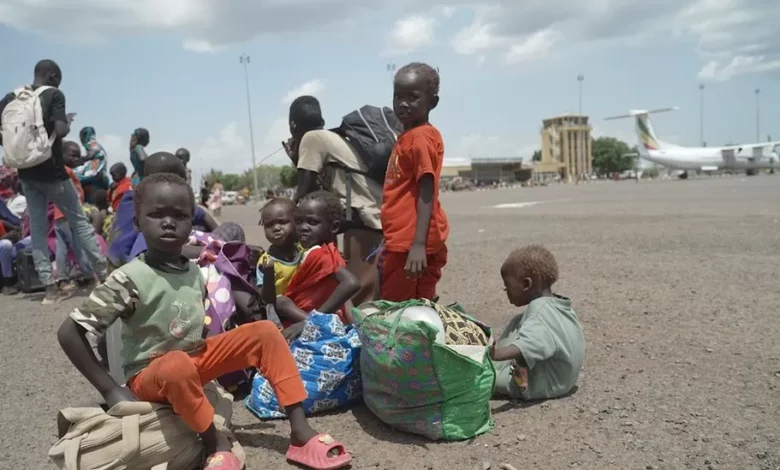
More than 10,000 people have registered as refugees in South Sudan after fleeing the conflict in Sudan, the United Nations (UN) Office for the Coordination of Humanitarian Affairs (OCHA) has said.
While, overall, 130,000 people have fled into South Sudan since the fighting started in April, most of them were South Sudanese returning home.
OCHA said the latest influx continues to compound a dire situation as the arrival numbers are projected to continue to increase as fighting continues.
Among those arriving include unaccompanied or separated children, the elderly, persons with disabilities, those with urgent medical needs, single- or female-headed households and pregnant women, OCHA added.
Many arrivals have witnessed, or were subjected to, violence and exploitation such as extortion and looting, including during their journey to South Sudan.
Looking at the rest of Sudan’s neighbours, Egypt – with 255,000 – and Chad – with 120,000 – have taken in the bulk of the refugees fleeing the violence.
Paloich Airport, which usually buzzes with the sound of well-heeled workers serving South Sudan’s oil fields, has turned into a camp for thousands of people fleeing the conflict in neighbouring Sudan – now more than a month old.
There are no toilet facilities, no running water, and no kitchens – just crowds of people living around their bags, resting on luggage trolleys, or sleeping under makeshift tents while waiting to catch a flight.
They have ended up here, four hours from the border with Sudan, in the hope of finding a way out. But there are few flights and little information about when people may be able to leave.
Among these refugees are Eritreans who have been uprooted for a second time after previously arriving in Sudan to escape the situation at home. And these people are stuck in limbo.
According to the UN, there were over 136,000 Eritrean refugees and asylum seekers in Sudan before this war.
Most Eritreans do not want to give their names to journalists because they are scared of retribution from the Eritrean authorities.-BBC






